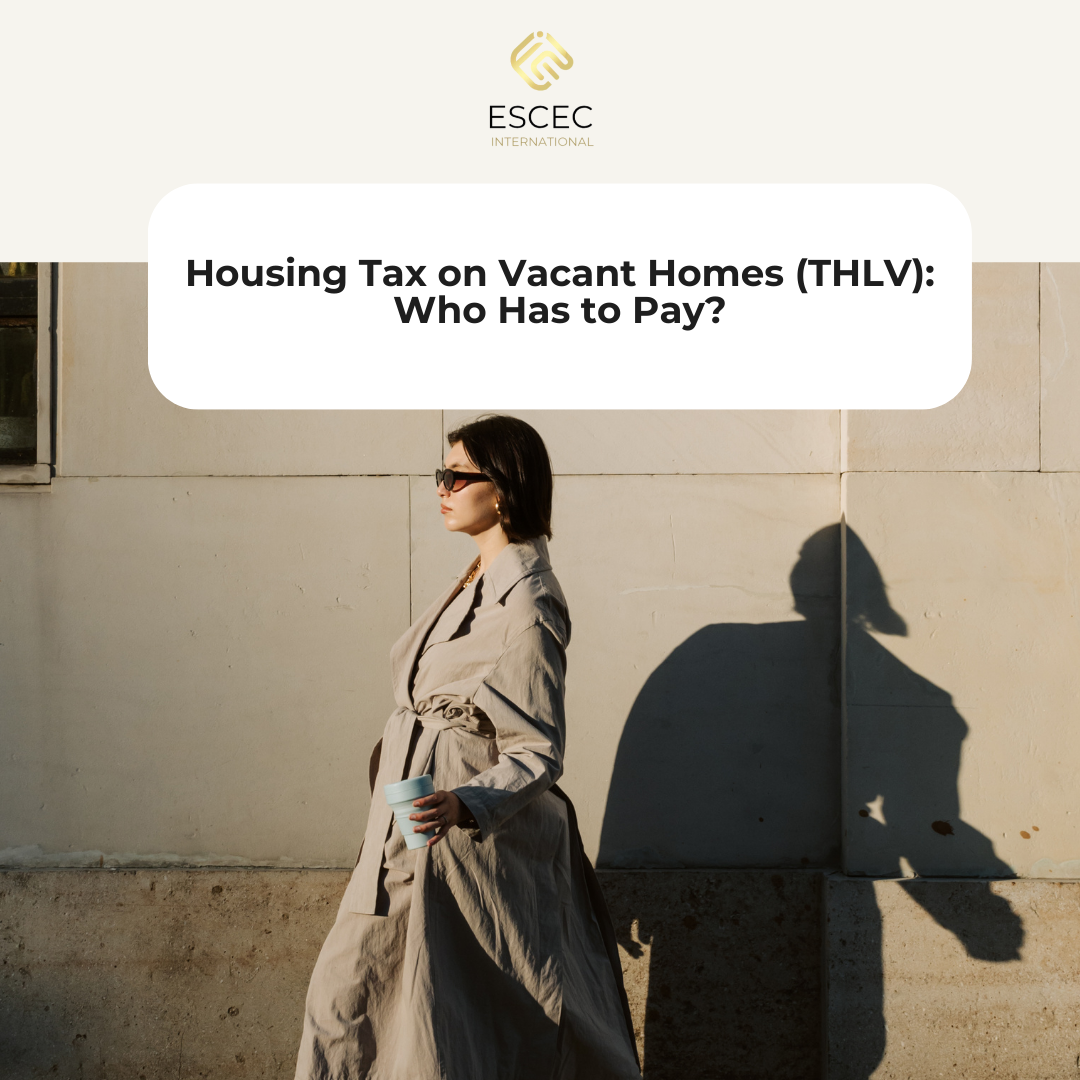Taxe logement vide (TLV) and Housing Tax on Vacant Homes (THLV): Who Has to Pay?
If you own a property that has been unoccupied for at least one year, you may be liable for the taxe logement vide(Vacant Homes Tax, TLV) or the housing tax on vacant homes (THLV), depending on the municipality where your property is located. Unlike the abolished housing tax on main residences, these two taxes are still in effect.
The Taxe Logement Vide (TLV)
The taxe logement vide (TLV), established by Article 232 of the French General Tax Code, applies in municipalities where there is a strong imbalance between housing supply and demand. This imbalance creates serious access difficulties in the residential housing market.
These challenges are reflected in:
-
High rental prices,
-
Elevated purchase costs of existing homes,
-
A significant share of properties used for purposes other than primary residence,
-
A high volume of housing requests compared to available social housing.
The list of municipalities where the TLV applies is set by Decree No. 2023-822 of August 25, 2023, amending Decree No. 2013-392 of May 10, 2013.
You are subject to the taxe logement vide if you are the owner or usufructuary of an unfurnished residential property vacant for at least one year as of January 1 in municipalities where the TLV applies.
Example: If your property is still vacant on January 1, 2025, and has been unoccupied since at least January 1, 2024, it is subject to the taxe logement vide in 2025.
The TLV is based on the rental value of the property and taxed as follows:
-
17% for the first year of taxation,
-
34% for subsequent years.
The proceeds of the taxe logement vide go to the National Housing Agency (Anah).
The Housing Tax on Vacant Homes (THLV)
The taxe d’habitation sur les logements vacants (THLV) may be introduced by a municipality or an intercommunal cooperation body (EPCI) in areas not covered by the TLV.
You must pay the THLV if you are the owner or usufructuary of an unfurnished residential property that has been vacant for more than two years as of January 1 of the tax year.
Like the TLV, the THLV is based on the rental value of the property. The tax rate is determined by each municipality and is the same as the rate applied to second homes.
Exemptions from TLV and THLV
Not all vacant homes are taxed. Certain exemptions apply, including:
-
Properties not intended for residential use,
-
Homes owned by public housing bodies (HLM) or classified as public domain,
-
Properties vacant beyond the owner’s control (e.g., listed for rent or sale at market price but without tenants or buyers, or awaiting urban development, rehabilitation, or demolition works),
-
Properties occupied for more than 90 consecutive days in a year,
-
Homes requiring significant renovations to be habitable, where costs exceed 25% of the property’s value,
-
Furnished second homes already subject to housing tax.
For further details, you can consult the official guide on the French government website: Taxe sur les logements vacants (TLV) et taxe d’habitation sur les logements vacants (THLV).
Need Help Managing Your French Property Taxes?
Navigating the rules of the taxe logement vide can be complex, especially for non-residents or English speakers. Our team of English-speaking accountants in Paris can help you understand your obligations, optimize your tax situation, and avoid costly mistakes.
What is the taxe logement vide (TLV)?
The taxe logement vide (TLV) is a tax applied to unfurnished homes left vacant for at least one year in municipalities where housing demand significantly exceeds supply.
Who has to pay the taxe logement vide?
You must pay the TLV if you are the owner or usufructuary of an unfurnished residential property that has been empty for at least one year as of January 1 in an eligible municipality.
How is the TLV calculated?
The tax is based on the property’s rental value. The rate is 17% in the first year of taxation and 34% in the following years.
What is the difference between TLV and THLV?
The TLV applies in high-demand areas defined by the State, while the THLV can be introduced by municipalities or intercommunal bodies in other zones. THLV targets properties vacant for more than two years.
Are there any exemptions from taxe logement vide or THLV?
Yes. Exemptions apply to properties not intended for housing, homes owned by public housing bodies (HLM), dwellings vacant due to reasons beyond the owner’s control, properties under major renovation, or furnished second homes already taxed.
How long does a home need to be vacant to be taxed?
-
TLV: vacant for at least 1 year,
-
THLV: vacant for more than 2 years.
Where does the TLV money go?
The revenue from the taxe logement vide is transferred to the National Housing Agency (Anah) to support housing policies.
How can I check if my property is in a TLV zone?
You can use the official simulator on Service-Public.fr or consult your local tax office.


